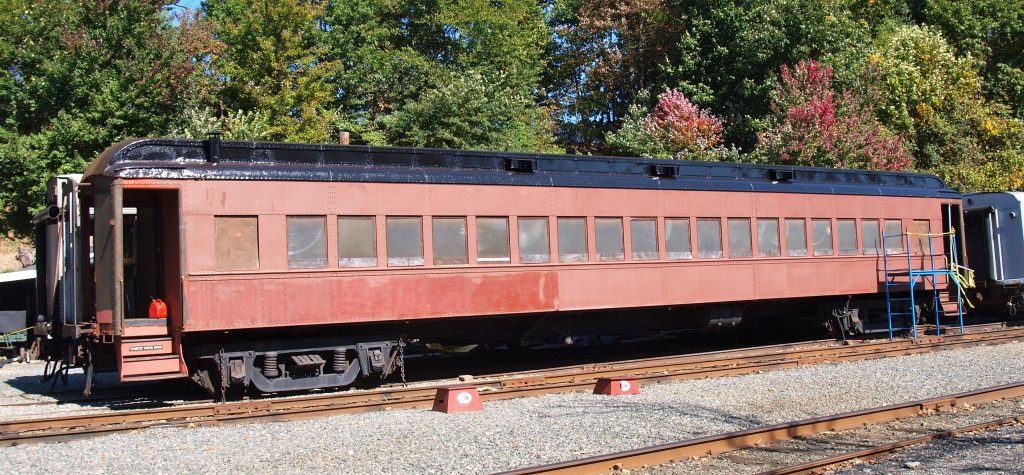
Central Railroad of New Jersey Coach #1001
Central Railroad Company of New Jersey (CNJ) Commuter Coach No. 1001 was built by the American Car & Foundry Co. in May 1923 as part of the No. 933-1168 series of class “PB” coaches ordered by the CNJ. It is a classic open-window coach with a clerestory roof. Now approaching 100 years old, it is very representative of the commuter coaches of the early-to-mid 1900s used out of the Greater New York City commuter area by the steam-powered railroads.
The exterior length of the coach is 72′ 6” and the interior length is 62′ 3”. The car carried 78 passengers, and weighs approximately 113,100 lbs. The coach was equipped with electric lights and heat was provided by a steam line connection to the locomotive.
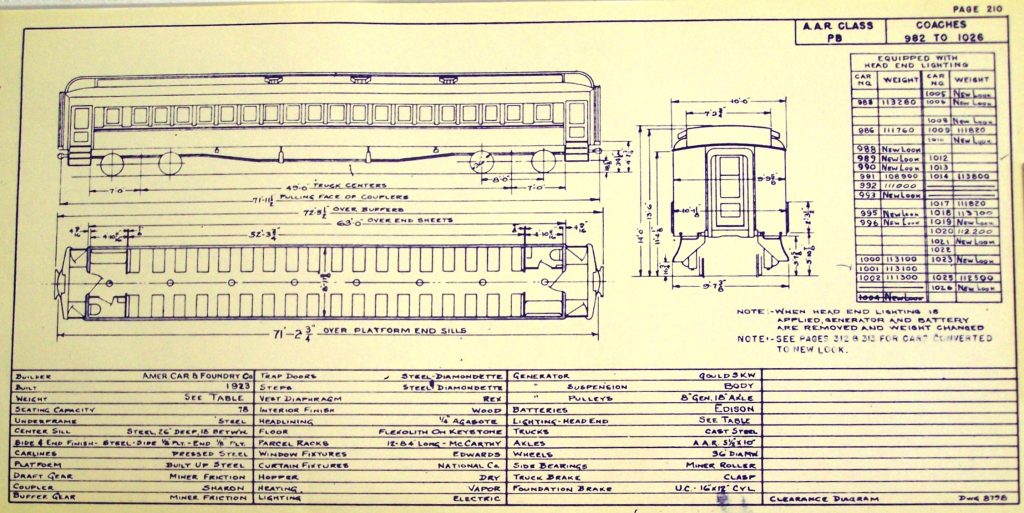
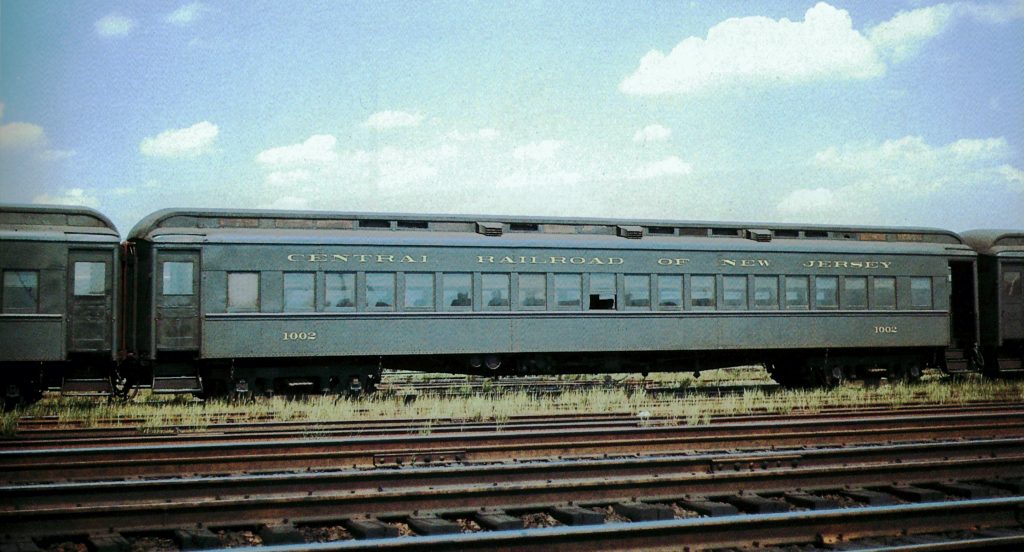
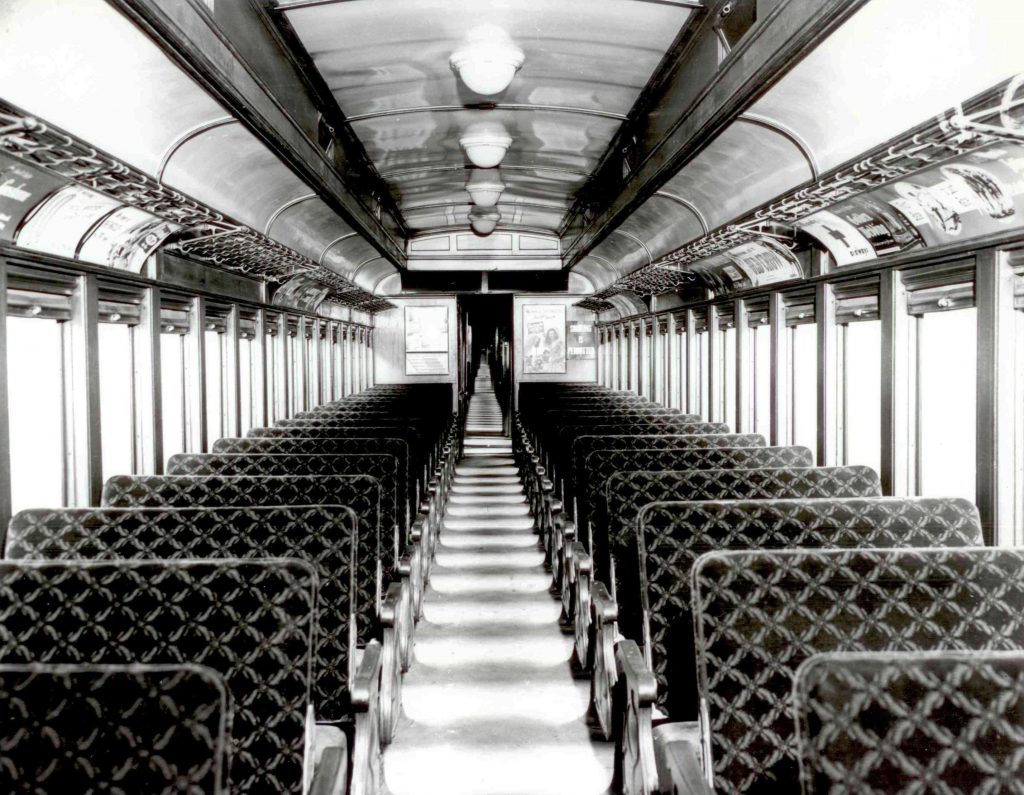
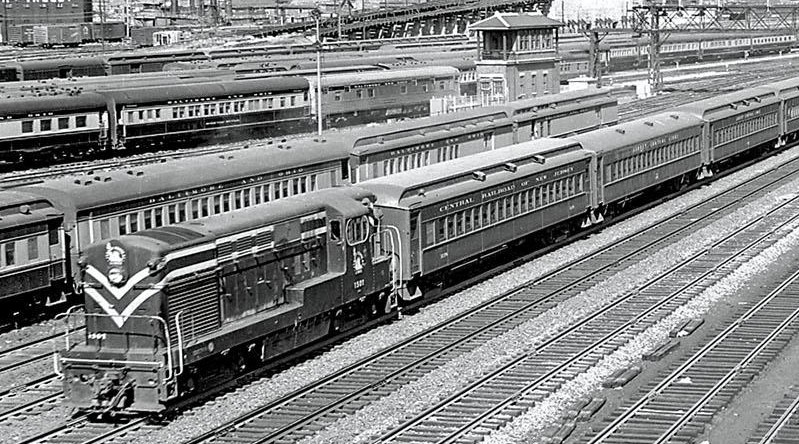
During its years of revenue service on the CNJ, No. 1001 most likely worked the railroad’s commuter lines between Jersey City, Newark, Bound Brook, Flemington, and the New Jersey Shore points. It is reasonable to assume that the car may have ventured into Pennsylvania via the CNJ’s route through Phillipsburg, NJ, with service to Easton, Allentown and Scranton, PA.
No. 1001 operated in regular CNJ commuter service until April 1965 when it was retired, ending 42 years of continuous service.
The relatively new Morris County Central Railroad (MCC) – operating steam-powered excursion trains out of Whippany, NJ – purchased #1001 in April 1965, along with four other recently retired CNJ coaches: #910, 1002, 1153 and 1205. The #1001 was named “Sunnyside” by the MCC, but kept its former CNJ number.
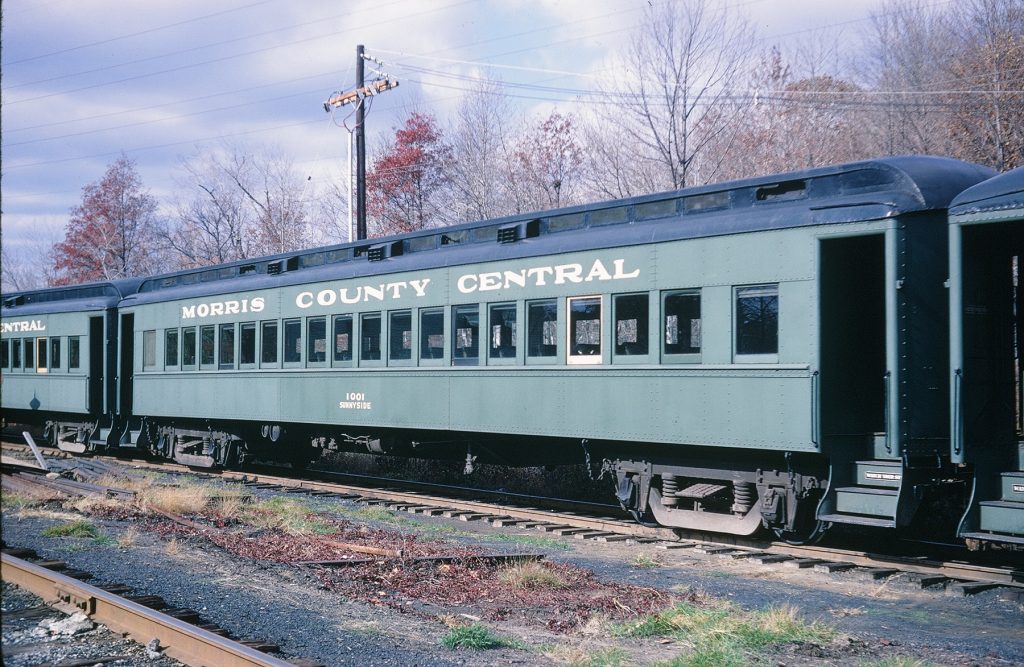
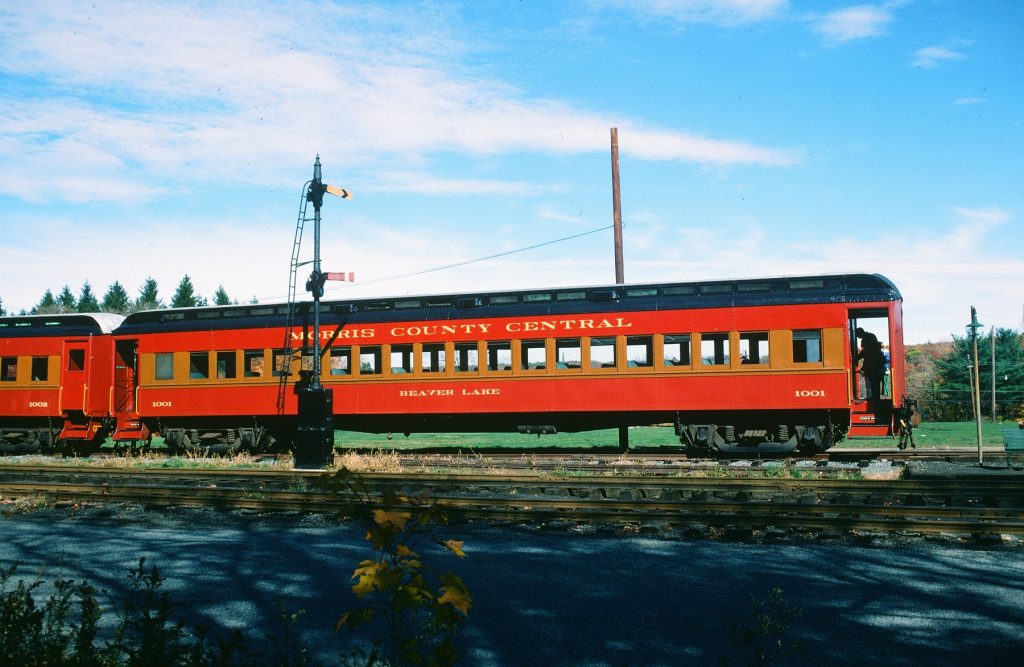
The MCC relocated to Newfoundland, NJ on the New York, Susquehanna & Western RR along with its five ex-CNJ coaches in late-December 1973. In 1976 #1001 was repainted in the MCC’s new livery and renamed “Beaver Lake”. MCC excursion operations with the #1001 operated out of Newfoundland until December 14, 1980 when the Morris County Central made its final runs. The non-profit museum group that operated in conjunction with the MCC remained open at the Newfoundland site for two more years before relocating the museum back to Whippany in mid-1983 where it was renamed “Whippany Railway Museum”.
Sadly, when it ceased operations, all of the MCC’s ex-CNJ coaches remained in Newfoundland where all but the #1001 were scrapped in January 1988. #1001 was sold to a private individual and placed on an isolated section of track near the Newfoundland station building.
Some restoration work and care had been done on coach #1001 over the years following the Morris County Central’s demise, and the car was in reasonably good cosmetic condition considering its age and exposure to the elements.
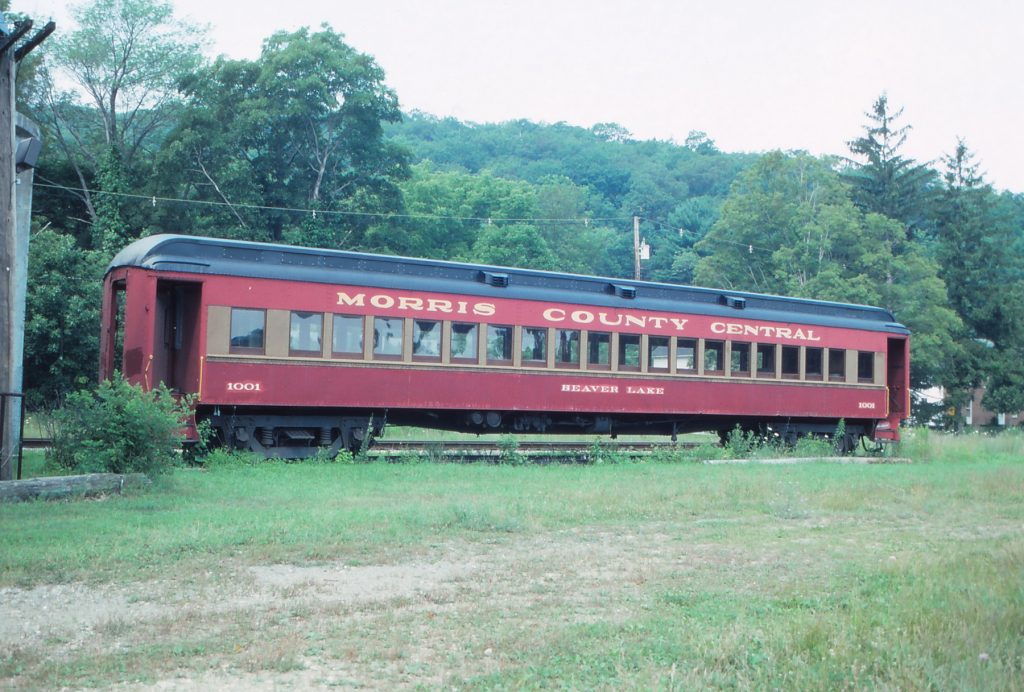
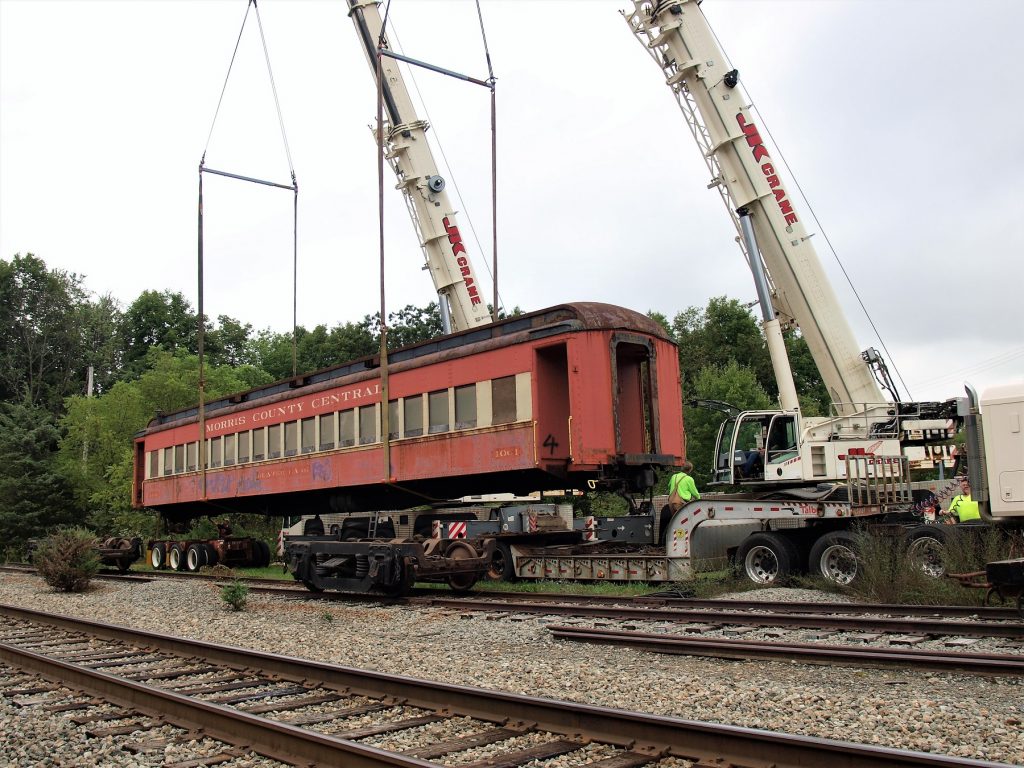
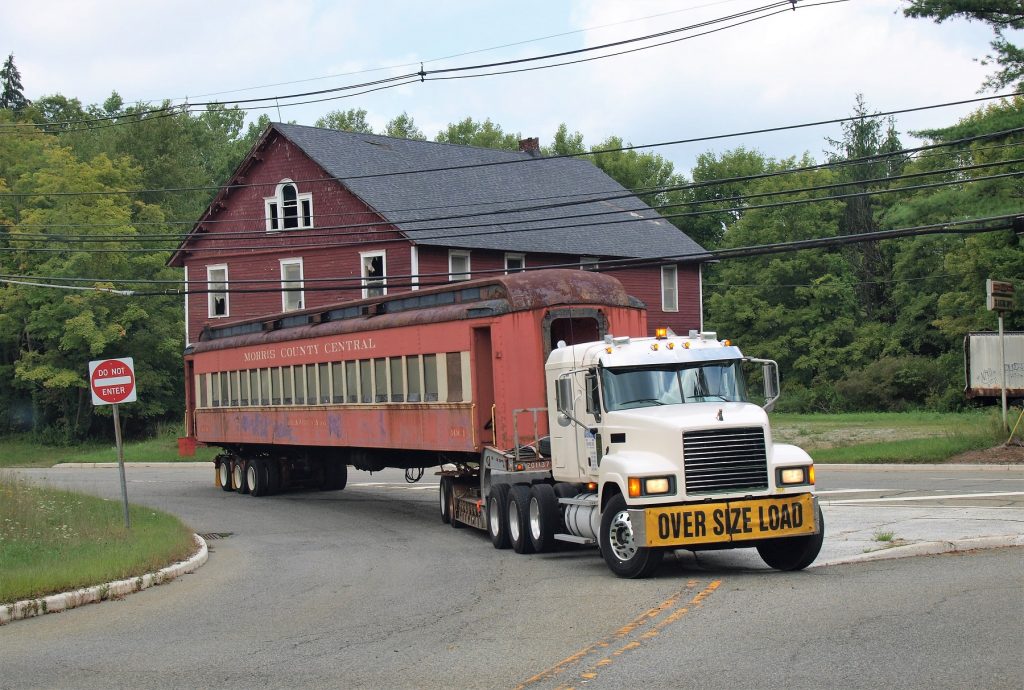
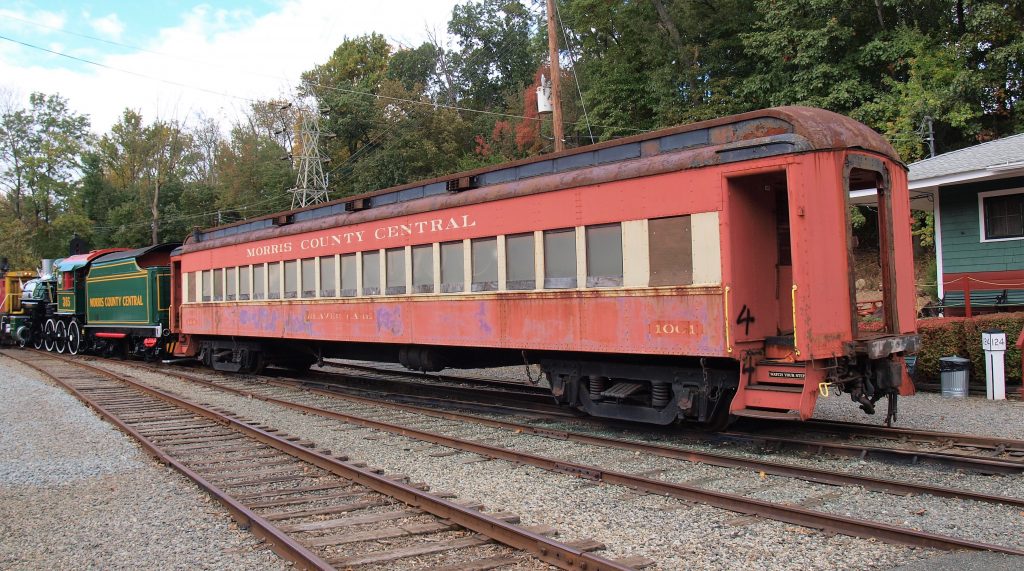
In 2017, #1001 was donated to the Whippany Railway Museum by its owners, Matt & Jane Klemchalk. The car was moved by truck from its long-time resting place at Newfoundland, NJ to the Museum site at Whippany on August 30, 2021. Seeing the car back on the rails in Whippany Yard after a nearly 48-year absence was at once emotional and exhilarating.
The Museum’s ultimate goal is to restore #1001 to as-built condition for service on the Museum’s popular excursion trains.
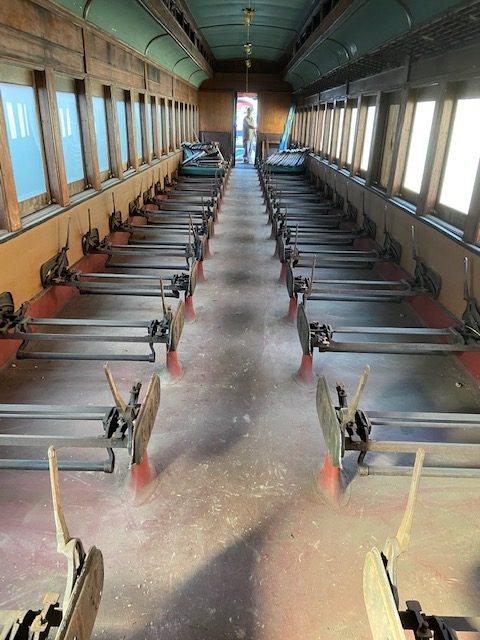
Upon the arrival of #1001 at Whippany, Museum volunteers immediately set to work on the car, clearing the interior of debris and taking stock of what needed to be accomplished.
A great amount of work was completed throughout 2022 on both the interior and exterior. As of mid-November 2022, all of the old exterior paint had been removed and the car given a coat of primer paint. Additionally, the roof had a new coat of paint applied in October 2022.
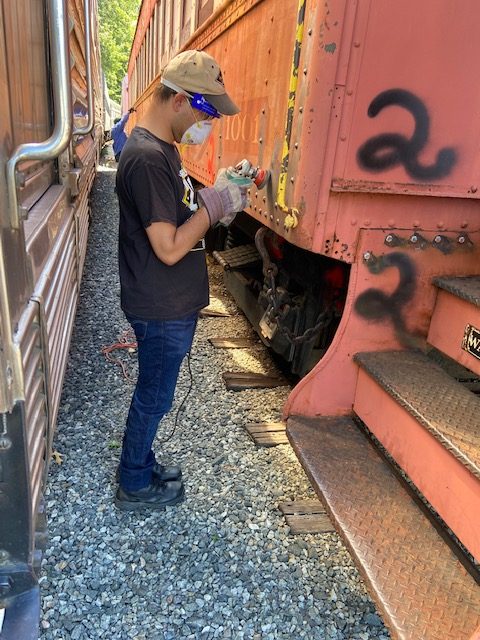
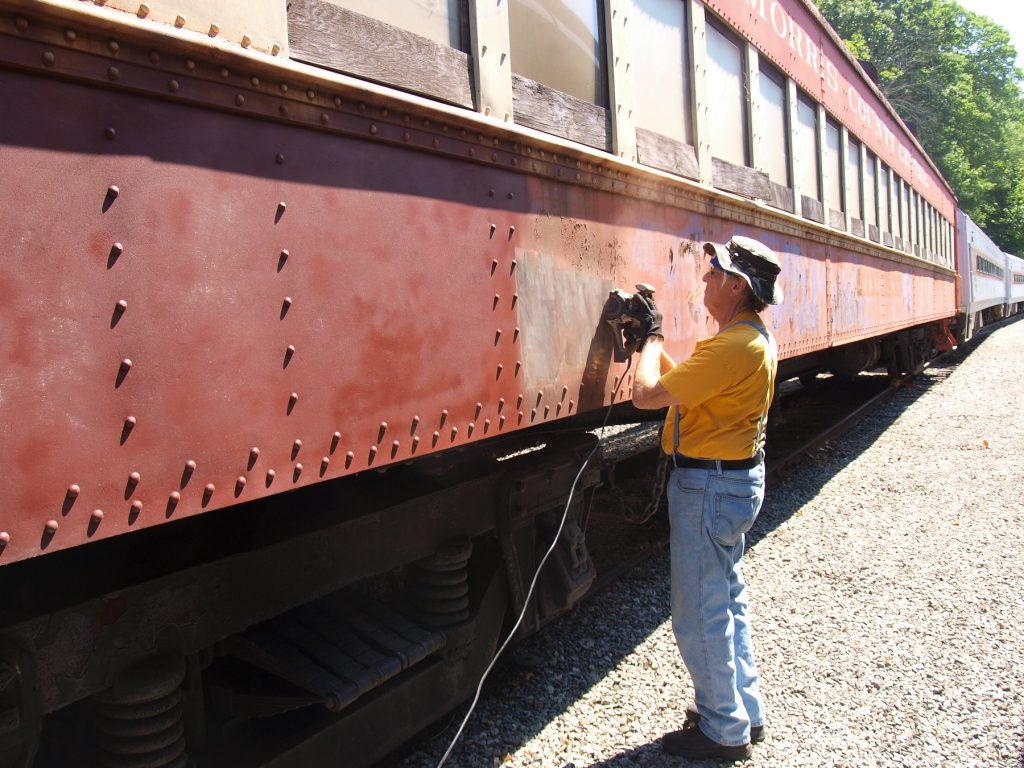

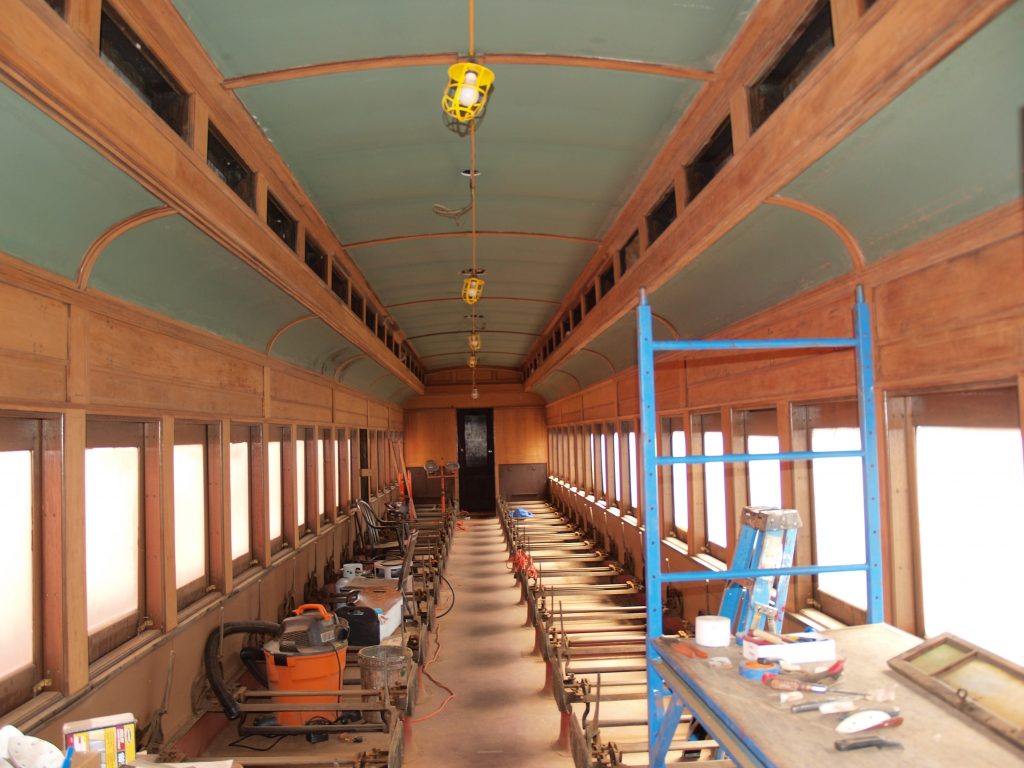
The restoration and return-to-service of coach #1001 is a priority, so work will be ongoing throughout the winter of 2022 – ’23 on the interior. As of November 2022, the sanding of the all-wood interior is nearing completion. Once that task is finished, the inside will be stained a proper tint. Most of the original, stained-glass clerestory windows were found to be missing and the few remaining were damaged when the WRyM acquired the car, but luckily, the Museum had a complete set of originals on hand and they will be refurbished and installed at a later date. In the meantime, all of the seat cushions and backs will need to be reupholstered.
Additionally, all of the car’s windows need to be replaced. New frames with new glass have been constructed and will be installed in the new year. Most importantly, there is major steel work that needs to be completed before the car can re-enter service. The repair of these deteriorated segments of metal work will commence in the New Year 2023, followed by a new paint job.
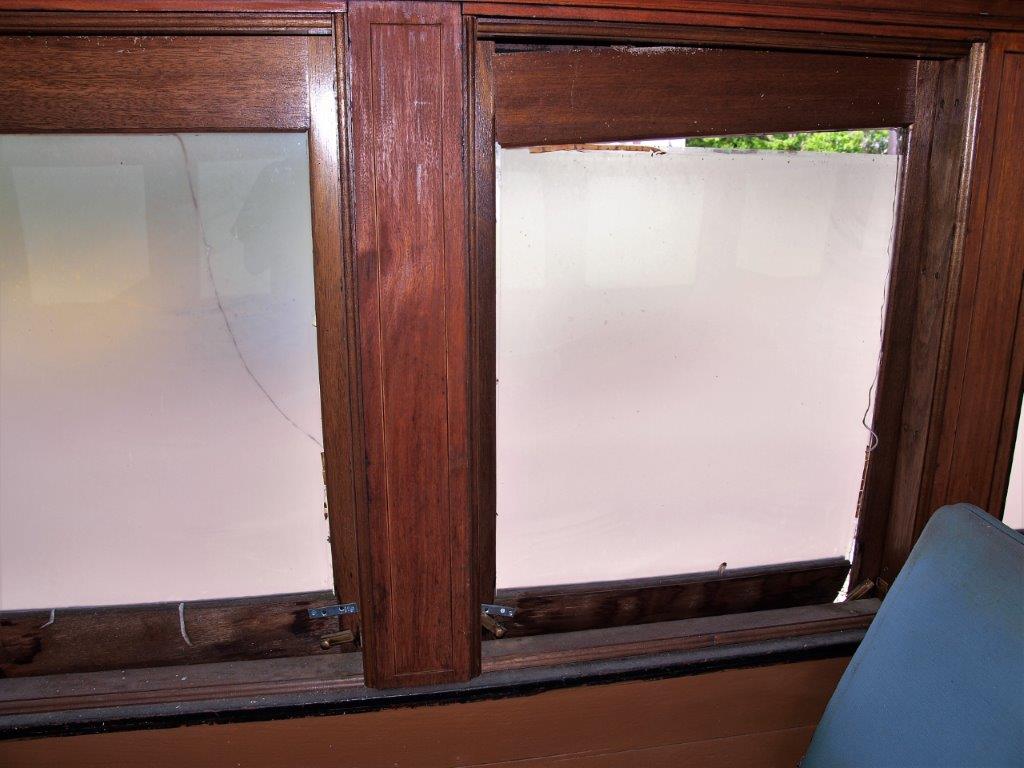
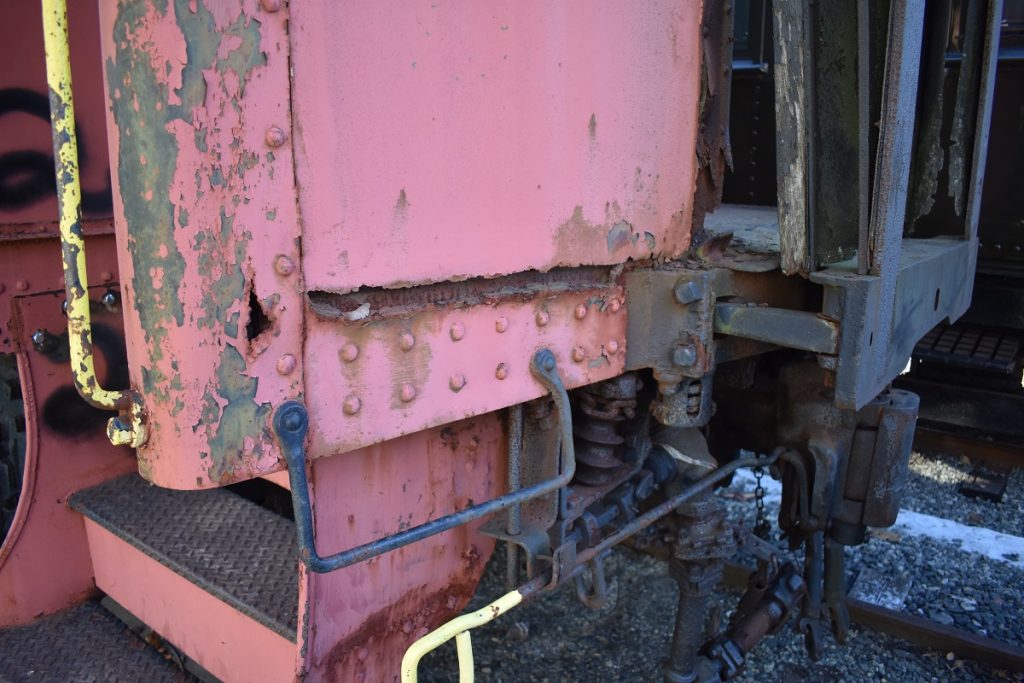
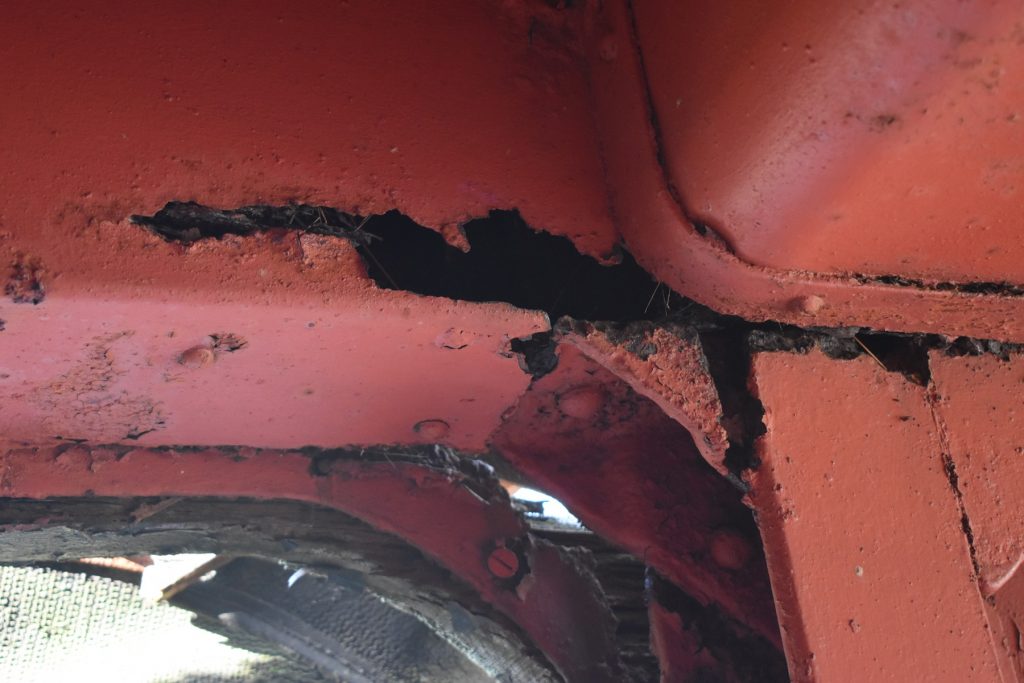
Restoration funds for #1001 are essential, so please consider making a donation to WRyM to further this effort along. You can visit our Donation Page to make an online donation. The Whippany Railway Museum is an IRS-approved, 501 (c) 3 non-profit, educational organization. Remember, all the work on 1001 so far has been completed by volunteers, and we use our funding wisely and carefully.
Thank you for your consideration and support!